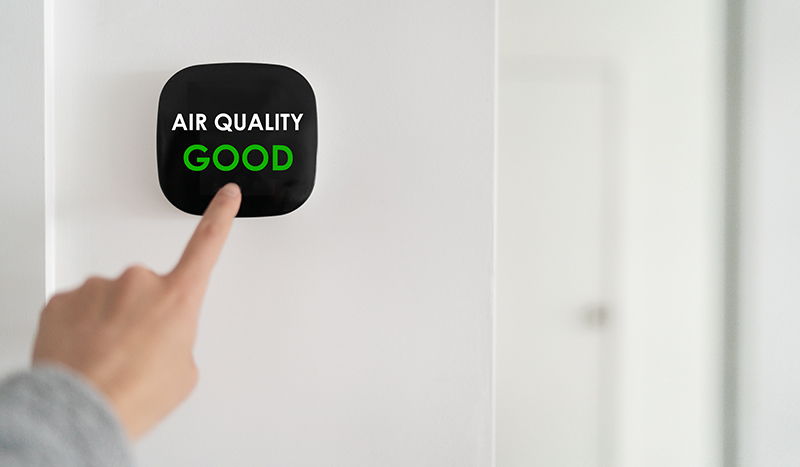Indoor air quality plays a major role in our health, especially for those who have allergies. Poor indoor air quality can exacerbate allergy symptoms and make daily life uncomfortable. In this blog, we explore the adverse effects of poor air quality on allergies. We also offer tips to reduce the impact of indoor air pollutants on allergy symptoms. By improving indoor air quality, you can create a healthy home and ease allergies.
The Importance of Good Indoor Air Quality
Good indoor air quality is essential for everyone. But it holds particular significance for those with allergies. Good indoor air quality helps reduce exposure to allergens like pollen, dust, and mold. By reducing allergens in your home, you can decrease the severity of allergy symptoms. Breathing clean air indoors promotes better respiratory health. For those with allergies, reducing airborne particles and irritants can ease symptoms. These symptoms include sneezing, coughing, wheezing, and congestion. Living with good indoor air quality allows those with allergies to enjoy their life. By reducing allergens, individuals can sleep and concentrate better. They can also engage in daily activities without constant discomfort.
How Poor Indoor Air Quality Affects Allergies
Poor indoor air quality can impact allergy sufferers in several ways. Inadequate ventilation and filtration systems allow allergens to accumulate indoors. Pollen, dust mites, pet dander, and mold spores become trapped. This leads to higher allergen levels that can trigger allergic reactions. Indoor air pollutants like VOCs, chemicals, and smoke can irritate the respiratory system. This can exacerbate allergy symptoms. These irritants can cause coughing, sneezing, and throat irritation. This means that allergy discomfort is more pronounced. Poor indoor air quality can worsen symptoms in those with allergies and asthma. Exposure to allergens and irritants can trigger asthma attacks. This can lead to shortness of breath, wheezing, and chest tightness. Prolonged exposure to poor indoor air can lead to sensitivity to allergens over time. This heightened sensitivity can cause stronger allergic reactions. This makes dealing with allergies even more challenging.
Tips to Reduce the Effect of Indoor Air Pollutants on Allergies
There are steps you can take to reduce the impact of indoor air pollutants on allergies. To create a healthier indoor environment, consider the following tips.
- Improve Ventilation. Ensure proper ventilation in your home. Open windows when weather permits and use exhaust fans in kitchens and bathrooms. Fresh air circulation helps remove indoor pollutants and improves air quality.
- Regular Cleaning. Be sure to clean your living spaces to reduce allergen buildup. Use a vacuum cleaner that has a HEPA filter, dust with a damp cloth, and wash bedding often.
- Track Hygiene. Keep pets clean and groomed to reduce pet dander in the home. Maintain a clean and dust-free environment. Pay attention to areas prone to mold growth such as bathrooms and basements.
- Use Air Purifiers. Consider using air purifiers with HEPA filters. These can remove allergens and pollutants from the air. Place them in common areas or bedrooms for peak effectiveness.
- Control Humidity. Keep humidity levels between 30% and 50% to prevent mold growth. Use dehumidifiers in damp areas and fix any leaks to reduce moisture-related allergens.
- Avoid Smoking Indoors. Smoking indoors releases harmful chemicals and particles that can worsen allergy symptoms. Establish a smoke-free environment to improve indoor air quality.
- Regular HVAC Maintenance. Schedule regular maintenance for your HVAC system. Clean or replace filters to prevent the recirculation of allergens. This also helps to maintain proper airflow.
Contact Us
Knowing how air quality affects allergies is crucial for those that have allergies. By focusing on your indoor air quality, you can ease your allergy symptoms. Try to follow the tips we have provided here. If you need further help with your home’s indoor air quality, contact us. We want you and your family to be able to breathe healthy air all year round.

